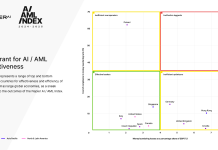In an industry-wide call to action, several prominent associations have voiced their concerns over the potential consequences of the current draft text of Recital 34 in the Anti-Money Laundering (AML) Regulation.
These associations include the European Third Party Providers Association (ETPPA), Electronic Money Association (EMA), European Payment Institutions Federation (EPIF), European Fintech Association (EFA), and Open Finance Association (OFA). The crux of their apprehension lies in the perceived discriminatory treatment against Payment Initiation Service Providers (PISPs), which, if unaddressed, could significantly hinder the operations of homegrown European FinTech companies, they claim.
The collective stance of these associations is that the current formulation of Recital 34 unfairly positions PISPs in comparison to other payment solutions like card acquirers (Visa/Mastercard), ApplePay, and Ideal/EPI. The primary contention is that these other entities are only required to conduct Customer Due Diligence (CDD) on the merchants they serve, whereas the ambiguous language of Recital 34 could potentially extend this requirement to PISPs, encompassing not just merchants but also payers. This discrepancy, they argue, places PISPs at a substantial and unjust competitive disadvantage.
In their communication, the associations have clarified two main points of contention. Firstly, they assert that PISPs, which merely facilitate payments from a user’s existing bank account without holding any account or balance for the user, should not be burdened with CDD obligations towards the payer. This position is similar to that of other payment services where the CDD focus is solely on the merchant.
The second point addresses the concern that the last sentence of Recital 34 could be interpreted as discriminating against PIS services, especially when combined with payment collection on behalf of the merchant. The associations argue that for both the provision of PIS and payment collection, the CDD obligation of the PSP should solely target the merchant, aligning with suggestions made by the Parliament.
The collective plea of ETPPA, EMA, EPIF, EFA, and OFA to the European co-legislators and the European Commission is to revisit and clarify the language used in Recital 34. They emphasise the need for a level playing field amongst all payment methods and the minimisation of potential misinterpretations that could negatively impact Europe’s indigenous payment solutions. The associations’ call to action underscores the urgency of finalising a clear legislative framework that reflects the political intent and safeguards the interests of European PISPs, ensuring their ability to compete effectively on the global stage.
Keep up with all the latest FinTech news here
Copyright © 2024 FinTech Global
Copyright © 2018 RegTech Analyst






